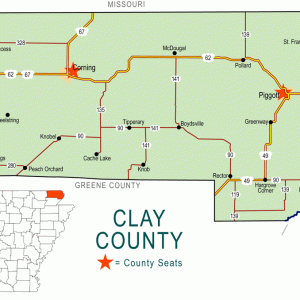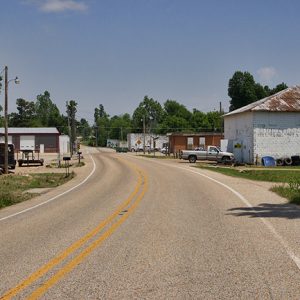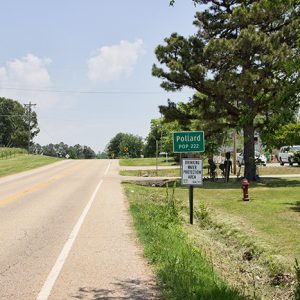calsfoundation@cals.org
Pollard (Clay County)
| Latitude and Longitude: | 36°25’51″N 090°16’06″W |
| Elevation: | 335 feet |
| Area: | 0.30 square miles (2020 Census) |
| Population: | 193 (2020 Census) |
| Incorporation Date: | October 15, 1921 |
Historical Population as per the U.S. Census:
|
1810 |
1820 |
1830 |
1840 |
1850 |
1860 |
1870 |
1880 |
1890 |
1900 |
|
– |
– |
– |
– |
– |
– |
– |
– |
– |
– |
|
1910 |
1920 |
1930 |
1940 |
1950 |
1960 |
1970 |
1980 |
1990 |
2000 |
|
– |
– |
173 |
169 |
165 |
170 |
253 |
298 |
229 |
240 |
|
2010 |
2020 |
|
|
|
|
|
|
|
|
|
222 |
193 |
|
|
|
|
|
|
|
|
Pollard is a city in Clay County, a few miles west of Piggott (Clay County) on U.S. Highway 62, in the foothills of Crowley’s Ridge. Pollard has witnessed the emergence and decline of the railroad and the timber industry; its focus in the twenty-first century is on local agriculture.
Even before the Civil War, several families had settled in the hills adjacent to Crowley’s Ridge. A store was operated by a man remembered only as McElroy. New Hope Baptist Church was established before the war began. The Pollard family moved into the area after the war, with Jack Pollard opening the first general store in the area with partner Tom Irwin, and Bill Pollard obtaining a post office (which was named for him) in 1876. Willis Pollard ran the first sawmill in the area.
In the early 1870s, M. J. Tucker moved to the area and developed a large plantation west of Pollard. He succeeded in having the post office moved to the general store on his plantation and renamed Advance. A new town arose on his land, but older residents resisted the change to the point of stealing Tucker’s property. After Tucker moved to Greenway (Clay County), the post office was restored to Pollard.
Two stores were in operation around 1900, one run by F. H. Montgomery—who sold the business to his clerk, O. C. Crider, in 1901—and the other owned by R. B. Settlemoir. A physician, J. P. Hiller, moved to Pollard in 1903 and became Crider’s partner while continuing to practice medicine.
In 1914, a Missouri corporation, the Butler County Railroad, built a line through the Pollard area to move hardwood timber from the new lumber operations in Clay County. Crider and Settlemoir combined to plat the community around the depot at Pollard, and the city was incorporated in 1921. Crider was elected as the first mayor of the city. G. B. Blakemore established the Bank of Pollard, which continued in business until 1931, failing during the Great Depression.
In the early 1930s, a highway was built across the United States, from the Niagara Falls region of New York to Carlsbad, New Mexico. Using portions of the Ozark Highway in northwestern Arkansas, the highway also created a new route across Clay County in northeastern Arkansas. The highway, which runs through both county seats, also passes through Pollard. With the decline of the timber industry, the railroads ceased to be a major factor in the life of county residents, and automobile traffic grew in importance.
Changing social patterns in the latter half of the twentieth century did little to affect the mostly white Clay County. Because of school consolidations, children in Pollard attend classes in the Piggott school district. Businesses along the highway in Pollard include the Morris Farm Center, Hunter’s Café, Holifield Motors, and Johnson’s Remodeling and Construction.
Following Piggott’s annual Fourth of July picnic, the city of Pollard has a community picnic every summer on the first Saturday after Independence Day. The celebration, which was first held in 1932, raises between $15,000 and $18,000 each year to maintain the New Hope Baptist Church cemetery and the Pollard picnic grounds.
For additional information:
Blair, Tim. “Pollard Holds Annual Picnic.” Clay County Times-Democrat, July 15, 2009. Online at http://www.cctimesdemocrat.com/story/1554939.html (accessed August 5, 2022).
Webb, Robert W. History and Traditions of Clay County. Mountain Home, AR: Shiras Bros. Print Shop, 1933.
Steven Teske
Butler Center for Arkansas Studies
 Clay County Map
Clay County Map  Pollard Street Scene
Pollard Street Scene  Pollard Street Scene
Pollard Street Scene 




Comments
No comments on this entry yet.